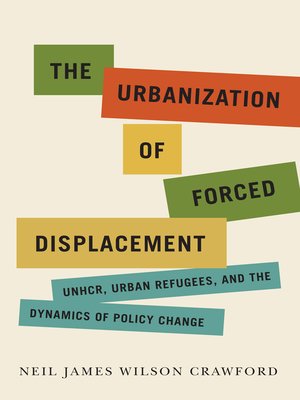The Urbanization of Forced Displacement
ebook ∣ UNHCR, Urban Refugees, and the Dynamics of Policy Change · McGill-Queen's Refugee and Forced Migration Studies
By Neil James Wilson Crawford

Sign up to save your library
With an OverDrive account, you can save your favorite libraries for at-a-glance information about availability. Find out more about OverDrive accounts.
Find this title in Libby, the library reading app by OverDrive.



Search for a digital library with this title
Title found at these libraries:
| Library Name | Distance |
|---|---|
| Loading... |
Displacement in the twenty-first century is urbanized. The United Nations Refugee Agency (UNHCR), the world's largest humanitarian organization and the main body charged with assisting displaced people globally, estimates that over 60 per cent of refugees now live in urban areas, a proportion that only increases in the case of internally displaced people and asylum seekers.
Though cities and local authorities have become essential participants in the protection of refugees, only three decades ago they were considered to sit firmly beyond UNHCR's remit, with urban refugees typically characterized as aberrations. In The Urbanization of Forced Displacement Neil James Wilson Crawford examines the organization's response to the growing number of refugees migrating to urban areas. Introducing a broader study of policy-making in international organizations, Crawford addresses how and why UNHCR changed its policy and practice in response to shifting trends in displacement. Citing over 400 primary UN documents, Crawford provides an in-depth study of the internal and external pressures faced by UNHCR – pressures from above, below, and within – that explain why it has radically transformed its position from the 1990s onward.
UNHCR and global refugee policies have come to play an increasingly important role in the governance of global displacement. The Urbanization of Forced Displacement sheds new light on how the organization works and how it conceives its role in global politics today.







